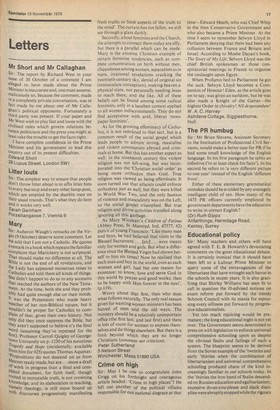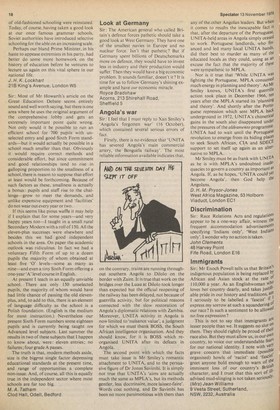Educational policy
Sir: Many teachers and others will have agreed with T. E. B. Howarth's devastating comments on the great educational debate. It is certainly ironical that it should have been left to a Labour Prime Minister to query some of the extravagances of the libertarians that have wrought such havoc in the schools in recent years. It is also gratifying that Shirley Williams has seen fit to call in question the ill-advised notions on exam reform put forward by the trendy Schools Council with its mania for espousing every silliness put forward by progressive educationalists.
Yet too much rejoicing would be premature; the long educational night is not yet over. The Government seems determined to press on with legislation to enforce universal comprehensive schooling upon us despite the obvious faults and failings of such a system. The blueprint seems to be derived from the Soviet example of the 'twenties and early 'thirties when the combination of libertarianism and universal comprehensive schooling produced chaos of the kind increasingly familiar in our schools today. In the 'thirties the iron hand of Stalin descended on Russian education and egalitarianism ; excessive do-as-you-please and slack discipline were abruptly stopped while the rigours
of old-fashioned schooling were reinstated. Today, of course, having taken a good look at our once famous grammar schools, Soviet authorities have introduced selective schooling for the able on an increasing scale.
Perhaps our bland Prime Minister, in his haste to appease extremists in his party, had better do some more homework on the history of education before he ventures to lecture us again on this vital sphere in our national life.
J. H. K. Lockhart
21B King's Avenue, London W5



































 Previous page
Previous page